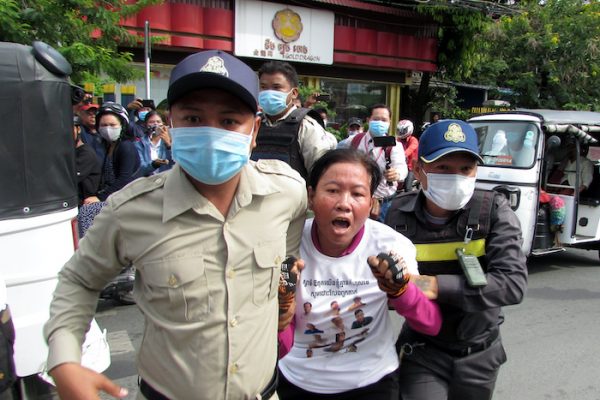Behind Cambodia’s impressive — albeit questionable — number of cases is a surprising turn-around in its pandemic response. In the early stages of the outbreak, Prime Minister Hun Sen took a cavalier attitude to the virus by downplaying public concerns, chastising the use of medical masks, maintaining close ties and travel with China, and permitting the docking of the MS Westerdam. This contrasts greatly with Cambodia’s stringent response strategy recently. The switch may be explained by Hun Sen’s attempts to maintain diplomatic efforts and bolster his image domestically and internationally.
Still, the turnaround in Cambodia’s pandemic response has demonstrated success for several reasons. The country’s Ministry of Health allocated some US$30 million towards the fight against COVID-19. In early March, Hun Sen issued a directive for relevant ministries to cut expenditures by 50 per cent in preparation for the government’s preventative and monitoring measures, medical training, treatment, and drug procurement, among other material acquisitions.
The government has also received assistance from other countries — most notably China — and worked with partners like the US Centers for Disease Control and Prevention, the World Bank, the Asian Development Bank, and the World Health Organization (WHO). The Cambodian government’s close collaboration with the WHO is especially notable considering efforts over the last decade to build capacity through Cambodia’s health surveillance mechanisms. The WHO is supporting health facilities in Phnom Penh and several other provinces, and helped the government implement a ‘National Master Plan for COVID-19’ aiming to mitigate the health, social, and economic impacts of the virus.
Strict travel bans have been central to the government’s response. In the early stages of the outbreak, the bulk of infections were ‘imported cases’ of foreign travellers and returning Khmer nationals. Amid fears that mass migration would exacerbate the spread of the virus, Hun Sen went so far as to cancel national celebrations of the Khmer New Year in early April. While travel restrictions have now eased, entry requirements remain stringent. In June the government implemented a steep fee (US$3000) on all international arrivals to deter foreigners from spreading the virus.
Despite relative success in dealing with COVID-19, the Cambodian government seems to be taking advantage of the pandemic to further consolidate its political power. In early March the UN High Commissioner for Human Rights Michelle Bachelet urged pandemic-hit countries to ensure human rights would be prioritised during the outbreak and to not abuse emergency measures.
The Cambodian government has ignored these calls. The National Assembly instead adopted the ‘Law on National Administration in the State of Emergency’ granting the government the power to execute unlimited telecommunications surveillance, control the distribution of information, restrict freedom of movement and assembly, seize private property, and enforce quarantines. Hun Sen claims these powers are necessary to contain the outbreak, and the legislation is premised upon Article 22 of the Cambodian Constitution which states that a state of emergency may be declared ‘when the nation faces danger’.
By tightening control over the spread of information, the emergency powers legislation may further enable the Cambodian government to crack down on political dissent. Evidently, crackdowns on opposition members have already occurred. Between January and June, for instance, 15 people were reportedly arrested and 80 more were released on bail but faced re-arrest. This political move was due to government concerns that the opposition may take advantage of the crisis to affect regime change. But the arrests reinforce a pattern of power consolidation since the mid-1990s.
While they exist even in democratic countries, emergency powers can be exploited by political elites who are prone to violating basic rule of law and human rights. Cambodia advanced itself as a successful post-communist transitional democracy in the early 1990s, but illiberalism and repression have since taken precedence. In a state dominated by one party like Cambodia, such an extraordinary set of powers serves only to deepen the scope of authoritarianism. The emergency legislation is clearly not limited to the pandemic, since this threat may provide the government with a new opportunity to advance its agenda for power consolidation and to justify the derogation of human rights.
Cambodia has done something right in mitigating the harmful effects of COVID-19, and emergency powers are justified to some extent given the severity of the pandemic threat and the country’s poor healthcare system. But the government should focus on improving healthcare quality for its people and not allow democracy and human rights to fall victim to draconian measures. Temporary lockdown measures for public safety are perfectly legitimate, but crackdowns violating democratic and human rights for political purposes are not and will only further delegitimise the ruling party.
Sorpong Peou is Professor of Global Peace and Security, Ryerson University, Toronto.
Emma-Jane Ni is a research assistant studying Political Science and International Development at McGill University, Montreal.
This article is part of an EAF special feature series on the novel coronavirus crisis and its impact.

